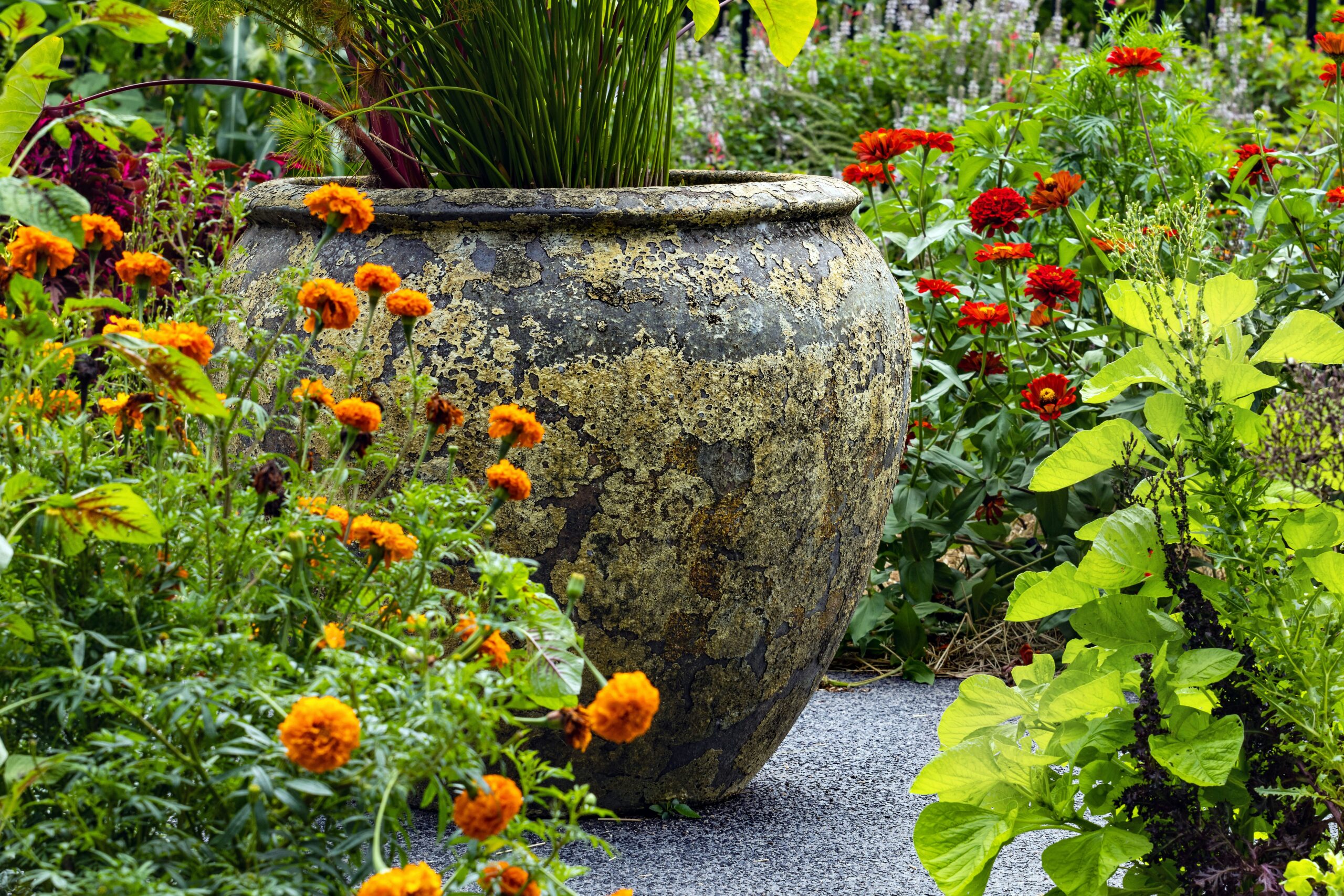Companion planting
Roses are a popular choice for gardens in Southeast Queensland, known for their stunning blooms and delightful fragrance. However, to ensure they thrive, selecting the right companion plants can enhance their growth, deter pests, and create a harmonious garden environment. Here are some excellent companion plants for roses that thrive in the subtropical climate of Southeast Queensland.
1. Lavender (Lavandula spp.)
Lavender is an ideal companion for roses due to its aromatic properties, which can deter pests like aphids and spider mites. Its drought-tolerant nature and beautiful purple flowers also provide a lovely contrast to the vibrant hues of rose blooms. Both plants prefer well-drained soil and full sun, making them compatible in the garden
2. Marigolds (Tagetes spp.)
Marigolds are renowned for their ability to repel nematodes
and other garden pests. Their bright orange and yellow flowers complement roses
beautifully, adding a splash of colour to the garden. Planting marigolds near
roses can also enhance pollination by attracting beneficial insects.
3. Garlic (Allium sativum)
Garlic is a natural pest deterrent, particularly against aphids, whiteflies, and spider mites. It’s easy to grow and can be planted around roses to help protect them. Additionally, garlic’s bulb can be harvested for culinary use, making it a practical choice for companion planting.
4. Nasturtiums (Tropaeolum majus)
Nasturtiums serve as excellent trap crops for aphids, drawing them away from roses. Their vibrant flowers and edible leaves add a touch of beauty and can also be used in salads. They thrive in similar conditions as roses, preferring well-drained soil and full sun.
5. Catmint (Nepeta spp.)
Catmint is a hardy perennial that not only attracts pollinators but also repels pests like aphids. Its aromatic foliage can enhance the overall fragrance of the garden, and its purple blooms provide a lovely backdrop for rose plants. Catmint is drought-tolerant and can thrive in a variety of soil types, making it an ideal companion.
6. Pansies (Viola spp.)
Pansies can add a cheerful burst of colour to the garden
while providing a protective ground cover. Their blooms can attract beneficial
insects, helping to pollinate roses.
7. Yarrow (Achillea millefolium)
Yarrow is a perennial herb that attracts beneficial insects
like ladybugs and lacewings, which can help control aphid populations. Its
flat-topped flowers provide a landing pad for pollinators and can enhance the
visual interest of a rose garden. Yarrow is also drought-tolerant, making it
suitable for the Southeast Queensland climate.
8. Bee Balm (Monarda spp.)
Bee balm is another great companion for roses, as it attracts a variety of pollinators, including bees and butterflies. Its vibrant red, pink, or purple flowers can provide a striking contrast to rose blooms. Bee balm thrives in well-drained soil and can tolerate some shade, making it versatile for garden design.
Selecting companion plants for roses in Southeast Queensland can significantly enhance your garden's health and beauty. By incorporating plants like lavender, marigolds, garlic, and others, you can create a thriving ecosystem that promotes growth while keeping pests at bay. Remember to consider the specific needs of each plant and monitor their interactions for a harmonious garden environment. Happy gardening

